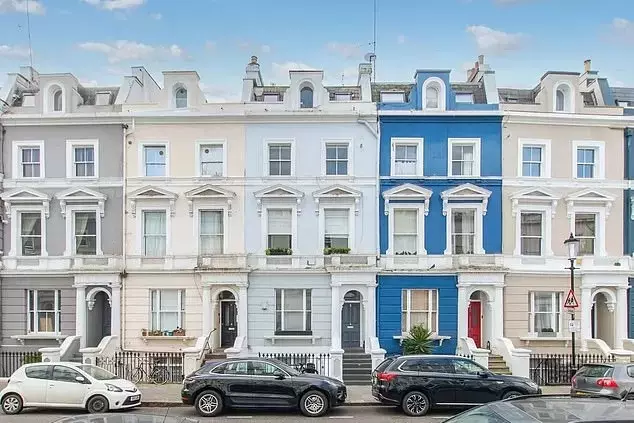






London's real estate sector is currently facing a period of stagnation, characterized by minimal price increases and prolonged selling times. This downturn is largely influenced by impending government policy changes, particularly speculative new property taxes. Despite these challenges, the current climate is creating opportunities for savvy investors and cash buyers to acquire properties at reduced prices. The market's shift from a seller's to a buyer's domain signals a pivotal moment for those prepared to navigate its complexities and capitalize on the prevailing uncertainties.
The London property market, known for its dynamic nature, has recently seen a dramatic cooling. Official statistics reveal a mere 0.7 percent annual growth in house prices, marking it as the poorest-performing region nationally. This slowdown is particularly noticeable in many areas where sellers are substantially reducing asking prices to attract buyers, leading to properties remaining on the market for extended periods. This 'freeze' is not merely a cyclical dip but appears to be exacerbated by several factors, including broader economic conditions and specific policy concerns.
A significant factor contributing to this hesitation is the ongoing speculation surrounding the Chancellor's potential introduction of new property taxes in the upcoming autumn Budget. There are discussions about replacing stamp duty with an annual property tax for homes valued over £500,000, which would impact a large segment of London homeowners, given the average property price of £561,000 in the capital. Furthermore, the potential removal of capital gains tax relief on high-value properties is causing further anxiety among sellers, who could face substantial tax bills on their asset appreciation. This uncertainty has led many potential buyers to adopt a wait-and-see approach, delaying transactions until the Budget's implications become clear.
Beyond immediate tax concerns, London's property market grapples with long-standing issues. The abolition of the non-domicile tax regime has prompted numerous affluent residents to relocate to more tax-friendly jurisdictions, thereby reducing the pool of high-end buyers. Concurrently, the increasing unaffordability of housing in the capital has narrowed the overall buyer base. Richard Donnell of Zoopla highlights that London's house prices have lagged behind the rest of the UK for nearly a decade, with elevated mortgage rates since 2022 intensifying affordability pressures, particularly in inner London areas reliant on international investment.
The impact is especially severe in the luxury segment, with properties over £5 million experiencing significant price drops. Areas like Mayfair, Belgravia, Kensington, Chelsea, and Knightsbridge are seeing an unprecedented supply, signaling further price adjustments. Data from LonRes indicates that the average price of a flat in prime central London has fallen to its lowest since 2013, with transaction levels down and properties taking an average of 324 days to sell. Many properties in the £3 million to £8 million range have seen price reductions, and even those under offer are often selling below their revised asking prices.
Despite the overall market slowdown, certain areas and buyer types are finding opportunities. Domestic cash buyers are increasingly influential, with some agents reporting that the majority of their sales are now to local buyers rather than international ones. Furthermore, specific postcodes, particularly in the outer boroughs like Abbey Wood/Thamesmead (SE2), Woodford (E18), and Leyton (E10), are showing higher percentages of homes under offer, suggesting that well-priced properties in family-oriented suburbs remain attractive. The market dynamic has clearly shifted, empowering buyers to be more selective and negotiate more aggressively, often leading to properties being snapped up when a realistic price is set.
The current market landscape, marked by tax uncertainties and a surplus of inventory, requires both sellers and buyers to adapt. Sellers who heed advice to adjust prices are more likely to find success, while those who are resistant risk prolonged market exposure. Some frustrated sellers are even opting to transfer their properties to the rental market, capitalizing on London's record-high average monthly rents. This strategic pivot allows owners to generate income while awaiting more favorable selling conditions. Ultimately, the London property market remains in a state of flux, presenting both challenges and distinct advantages for those who can navigate its evolving contours effectively.
